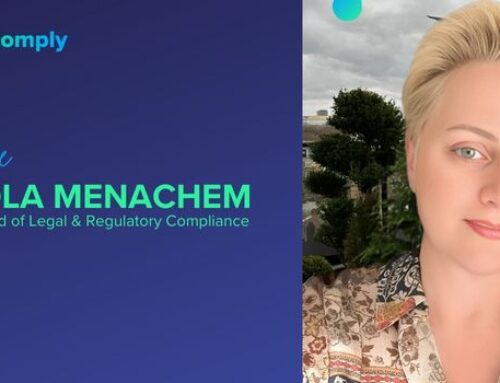Mike de Graaff, Co-Founder and Chief Compliance Officer at BetComply, spoke to SBC Media, highlighting BetComply’s commitment to trustworthiness in the iGaming industry. The piece dives deep into building trust with external stakeholders and navigating stringent regulations.
One of De Graaff’s key passions is the relationship between the igaming industry and external stakeholders such as the media and the political class.
These relationships have been somewhat tainted in recent times, culminating in more stringent regulations across the globe, but particularly in Europe and Latin America. De Graaff tells SBC News that this perceived breakdown in trust between these stakeholders has multiple root causes.
“From the industry’s point of view, the market penetration strategy has been a major part of the distrust that came out of that,” De Graaff says. “Too many ads, and ads filled with risky content in terms of compliance, to gain market share ASAP.
“On a political level, there have been many elections in the EU, UK and elsewhere in the last two years. Some politicians used the public outcry to gain votes by being tough on casinos, and the Christian parties used it as a way to gain votes as well.”
Essential to success, in BetComply’s compliance head’s view, is implementing a strong government affairs strategy that aims to build cooperative relationships with political and regulatory figures.
He has a mantra when it comes to these relationships: if you want to be trusted, be trustworthy. It is advised that, in his view, the industry has not heeded recently, which has resulted in stringent regulations in the Netherlands, Belgium, Italy and the UK.
“Governments often smell bad intentions from a mile away,” De Graaff asserts. “If they think you are making contact with them to get something out of them, or ‘pretend to be of good will to gain trust’, you won’t be successful.”

The Netherlands introduced a blanket ban on the advertising of online gambling in July 2023, while similar measures were implemented in Belgium last year. Italy has long had advertising restrictions to some extent, and other countries such as Argentina and Australia have explored the possibility of such measures.
This is, in part due to the souring of the communications between the industry, politics and the media.
The latter – newspapers and television in particular – has been quick to bash the industry at the first sniff of malpractice, or even merely perceived malpractice.
De Graaff concedes that media coverage is largely out of his client’s control, but that they should be hyper aware not to give them anything to work with.
“Media loves negative pieces, they generate more clicks. Scroll through any news site, watch any news show, it’s all negative events. There will never be a media piece saying something along the lines of: “This licensed casino was audited recently and found compliant, what a great day for all of us!”
The culmination of this disconnect between the industry and external stakeholders has resulted in poor public perception and stricter regulation. Yet it is worth considering that this increased scrutiny comes at a time when new regulated markets are emerging across the globe.
There are significant opportunities in the US, where numerous states have launched online sports betting in recent years, and in Latin America, where nations such as Peru, Colombia, Chile and notably Brazil all establish regulated markets for igaming.
So while there is undoubtedly a challenge in navigating strict regulations when it comes to things like marketing and slot limits, it is as a result of those new opportunities emerging.
This is why BetComply has exploded in popularity throughout 2024. The company has successfully liaised with regulators across the world to help its clients obtain licences and pursue their expansion ambitions.
De Graaff attributes this success to the vast experience of his team, and the firm’s willingness to actively engage with a range of stakeholders.
“We have experience with getting the healthcare field to work with us, that industry is probably the most negative about casinos out of everyone,” he says. “We also get praised for some of the developments we have done. It comes down to good intentions and not just discussing something for the commercial benefits of the operator. The argument “but if we don’t do this, all players will go illegal’’ doesn’t hold ground with regulators so much.
“An example of a good argument could be: We are doing/want to do ‘Action A’ because we know this specific area (e.g. vulnerable people, interventions) has a lack of knowledge, causing severe damage to this type of players and we want to research that and create something for. “
Ahead of his appearance at the SBC Summit in Lisbon, it was remiss of SBC News to not ask whether, bluntly, the industry knows what it is doing.
Offering a sneak peak into his thoughts, De Graaff concludes: “On building trust, not so much, for the earlier mentioned reasons. To get the regulator and other stakeholders to trust you, change the conversation from a commercial perspective of the company to being a stakeholder in creating a safe environment.
“If you want to be trusted, be trustworthy.”




